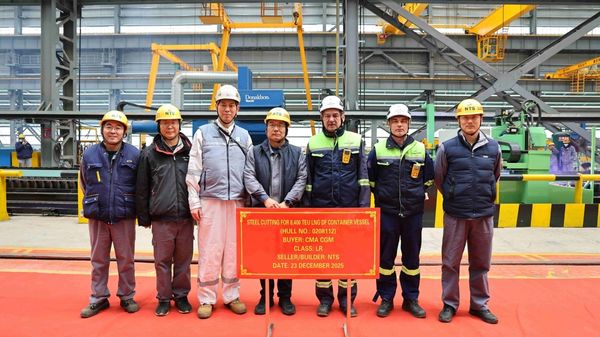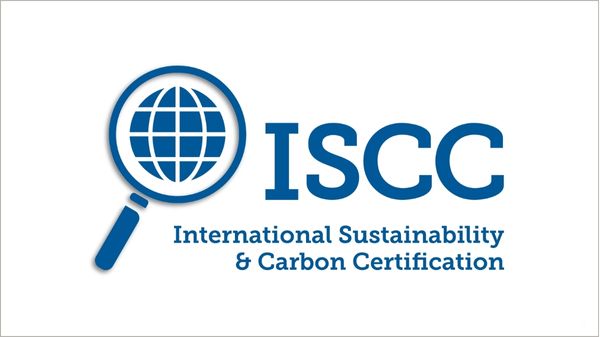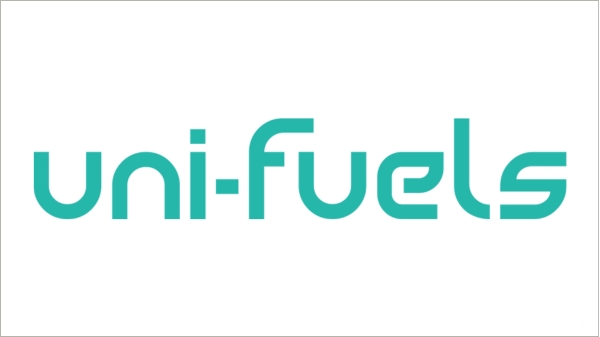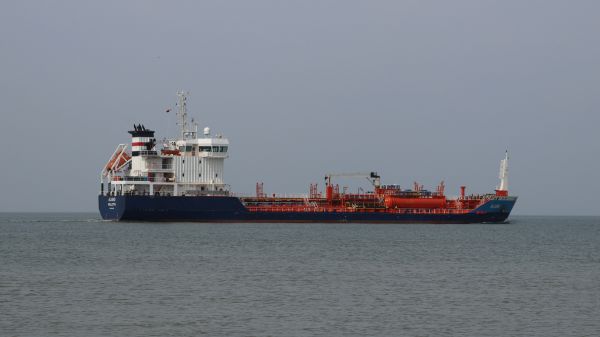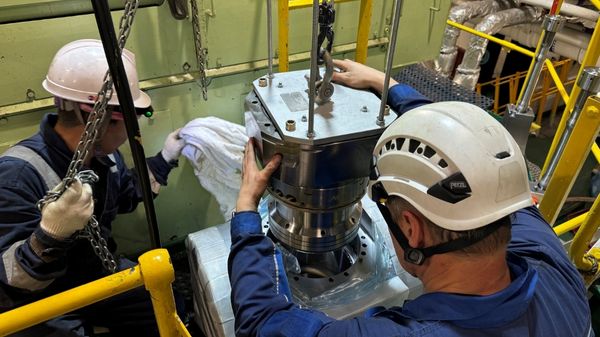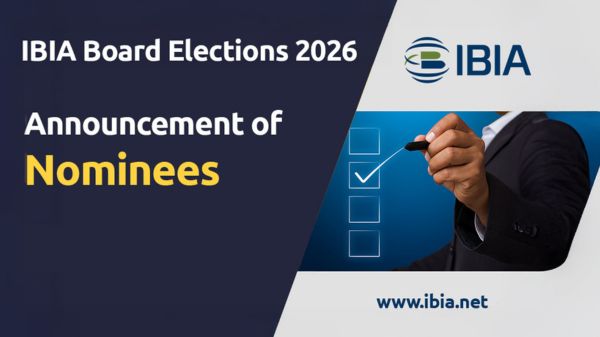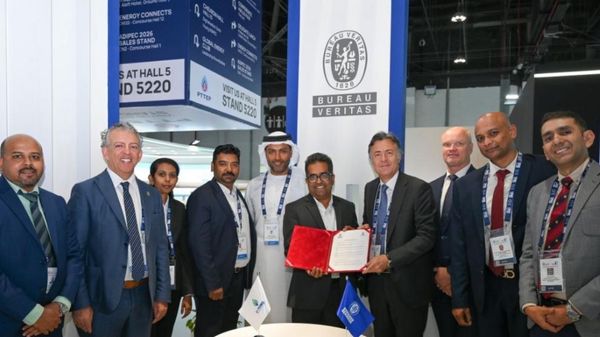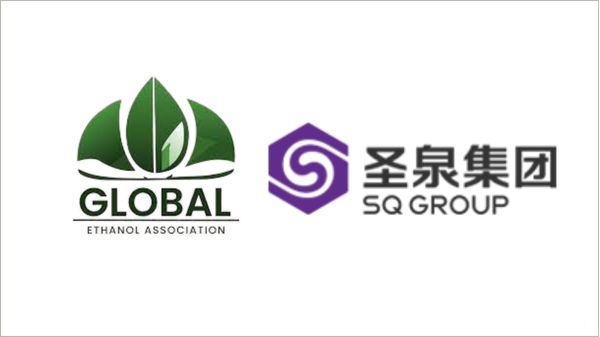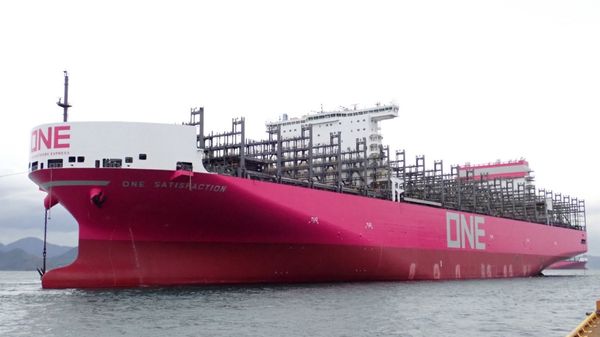Announcement - Source: Quadrise Fuels International plc
Quadrise Fuels International plc is the emerging manufacturer and supplier of MSAR® emulsion fuels, a low cost alternative to heavy fuel oil (one of the world's largest fuel markets utilising over 600 million tonnes per annum) in the global shipping, refining and steam and power generation markets. The Company announces its results for the year ended 30 June 2012.
Operational highlights
* Quadrise MSAR® Marine Fuels: The first ever seaborne trial of an emulsion fuel for international shipping application was undertaken on the Sorø Mærsk in early 2012. Results confirmed the fuel handling and environmental attributes of MSAR®, and have led to an enhanced formulation "MSAR®2" for optimum "in-service" performance and cost.
Agreement was reached with key partners to proceed with the fuel manufacturing and assessment programme of MSAR®2 as a prelude to commercial supply. This programme includes land-based tests simulating the most modern engines of a size, type and standard which typically power the largest container ships and oil tankers.
* In Saudi Arabia, the results of project assessments undertaken by Quadrise were independently confirmed by Saudi Aramco specialists, who reported the identified project opportunities for application of MSAR® technology in Saudi Aramco refineries to be highly profitable.
* Prime position for progressing project opportunities in Central & South America taken over from our associate, Quadrise Canada Corporation, with effect from June 2012.
* The Mexican refinery based project proposal and associated contract terms continued to be the subject of extensive commercial, technical and legal review by PEMEX. An agreed project programme is anticipated for implementation in late 2012/early 2013.
Financial highlights
* No debt and £1.7 million (2011: £4.0 million) in cash reserves at 30 June 2012. With the additional fundraising of £3.5 million (before expenses), as announced on 4 October 2012, the Directors believe that the Company now has sufficient funds to progress through to a full commercial phase.
* Loss after tax of £4.2 million (2011: £6.6 million) arising principally from non-cash charges of £2.4 million (2011: £4.8 million) for the amortisation and impairment charges of intangible assets and available for sale investments.
* Cumulative tax losses of £33.8 million (2011: £29.6 million) available for set-off against future profits, which should enable the Group to mitigate substantial tax charges anticipated in the earlier years of sustainable revenue.
* Total assets of £13.8 million at 30 June 2012 (2011: £19.2 million), which includes a new MSAR® Manufacturing Unit ear-marked for the first commercial project.
Significant events post year end
On 5 July 2012, QFI announced the execution of a Memorandum of Agreement ("MOA") between its 100% subsidiary, Quadrise International Ltd ("QIL"), and Nexidea Incorporated ("Nexidea"), a professional consulting firm to the downstream oil industry. Under the MOA, QIL is partnering with Nexidea in the development of emulsion fuel projects and joint ventures in Central and South America on a selective basis.
On 22 August 2012, QFI announced that QIL had executed a Memorandum of Agreement with M/S Rafid Group for Trading & Contracting to formalise their relationship in anticipation of contractual commitments for the application of MSAR® technology within Saudi Aramco and the supply of MSAR® fuel in the Kingdom of Saudi Arabia ("KSA").
On 4 October 2012, QFI announced the successful placing of 50 million new shares at 7p each, raising £3.5m (before expenses) to support its business development requirements over the foreseeable future.
Commenting on the results
Ian Williams, Executive Chairman of QFI said: "During the year, the Company continued to progress steadily towards full commercial operations, with significant developments in each of our potentially 'company-making' business opportunities. With successful tests and the first open-ocean trials of Marine MSAR® and the conclusion of an agreement with M/S Rafid Group setting up the basis for commercial operations in Saudi Arabia, the Company is poised to enter the next phase of its growth.
"In addition to key operational developments, the Company's finances are now secured for the foreseeable future with the successful completion of a share placing, which will help fund operations through to sustainable revenue generation.
"The global financial and regulatory climates continue to favour the Company in the medium and longer term. Ever tightening emissions standards in the marine sector, and increasingly favourable oil refinery economics, have created fertile ground for the Quadrise proposition.
"The continued efforts and focus of our board, management team, staff, partners and contractors to date have left Quadrise in a strong position to capitalise on the positive developments of 2012 and with exciting prospects ahead for 2013."
Business Overview
The Company progressed steadily over the past year towards the near term objective of fully commercial operations in the core programmes, although certain milestones planned for the period under review were not fully met. Associated delays in a number of key steps en route to the early revenue phase required the Group to raise limited additional equity funds to bridge the extended pre-commercial period, assure continuity of core programmes and provide the capacity to progress new opportunities in Central and South America. In all cases the issues concerned have affected pace rather than direction, and developments over the year in the Marine MSAR® and Saudi Aramco programmes have de-risked the realisation of these two major business opportunities - either of which has the potential to be a 'company maker'.
At a macro level global industry and economic trends have continued to underpin and enhance the prospects for the Group in the medium and longer term. The MSAR® fuels technology offers the means to add significant value in oil refining with minimal capital investment. The scope for added value is directly determined by the price spread between heavy fuel oil and distillate fuels - typically diesel. The nature of global economic development is such that the higher growth economies are driving strong demand for distillate fuels such as kerosene and diesel, while the demand for residual fuels such as heavy fuel oil and marine bunker fuel oil is stable to declining. The latter being due also to trends such as 'slow steaming' to reduce fuel consumption in the international shipping (bunker fuel oil) markets. These continuing influences on the underlying fundamentals, together with the pressures on refining margins, are expected to maintain and stretch the inter-product price spreads which underpin the Quadrise value proposition. This is very much in line with Group expectations as advised to shareholders in previous reports.
Quadrise is targeting selective sectors of the very large $400 billion p.a. global market in which, for practical purposes, business opportunity is largely unaffected by market growth and world economic conditions. This generally applies to our key target markets of Saudi Arabia and Mexico, as well as the global marine fuels markets in which a very modest share of the current fuel oil business would potentially transform the Group into a substantial "mid cap" company. In the case of marine fuels it is interesting to note that over 80% of the 120+ million tons of bunker fuel oil used by shipping companies is sold through five key 'bunkering hubs', all of which are also refining centres. Therefore, despite being a global market, the introduction of MSAR® marine fuel may be realised on a rationalised and economic basis.
Quadrise International Limited ("QIL") is QFI's wholly owned operating subsidiary which is party to the Alliance Agreement with AkzoNobel. Shareholders were advised in July 2012 of an agreement reached with Quadrise Canada Corporation and Nexidea Inc. of Dallas ("Nexidea") whereby QIL would take the lead role in future business development in Central and South America ("CSA"). The associated Memorandum of Agreement between QIL and Nexidea sets out the basis of that relationship and obligations of the parties. The Company has been aware of a range of prospective project opportunities beyond the core programmes which were prioritised in the 'select and focus' strategy applied with considerable discipline over the past three years. This move into CSA in association with Nexidea, is the first extension of activities since 2009 and is closely targeted at identified opportunities and prospective joint venture partners with the expectation of early results. High level 'screening' studies are undertaken on a continuing basis, either in response to approaches from third parties (which include major oil companies) or prospects identified by the Group. However, the Company has no firm plans to extend the future business programme beyond the CSA projects in the medium term. The overriding priority remains to enter and contractually assure the early revenue phase in our core programmes.
Financial Overview and Investor Relations
As advised in the 2011 Annual Report, the cost structure was revised and aligned with the corporate framework to minimise overheads, maximise outsourced services and contain expenses related to non-managed interests in Canadian associate companies held for investment. This policy again guided the 2012 operating budgets, and the corporate and operating expenses of £1.865m for the period were 1% above 2011 (£1.843m). This was contained within planned levels notwithstanding a number of unbudgeted activities required to complement the core business programmes, including Marine MSAR® optimisation work. The Company continued to benefit from the support of International Energy Group AG, the largest shareholder, which agreed to extend the favourable cost sharing arrangements for certain services, facilities and key personnel through the full financial year - well beyond the December 2011 agreed change date.
The operating loss of £4.222m for the period (2011 £6.604m) was in line with expectations, but included a further impairment charge of £611k (2011 £2.705m) relating to the carrying value of the Canadian investments. The nature of these likely charges was advised to shareholders in June 2012 following an "in country review" with the managements of the companies concerned.
QFI did not raise additional equity funds during the financial year. However, a successful and well supported placing was announced on 4 October 2012. This was limited to 50 million shares for which the board held disapplication of pre-emption rights and was targeted at the institutional sector. The shares were placed at 7 pence each (twice the 2011 placing price) and £3.5m (before expenses) was raised. The funds now available are expected to cover the business programme adjusted for the opportunities in CSA, limited slippage on the Saudi Aramco and marine timetables and additional plant inventory. The Company remains debt free and is currently funded to take the Group through to the early revenue phase, led by the Marine fuels sector during 2013. The decision to acquire and hold an additional commercial scale MSAR® Manufacturing Unit ("MMU") in inventory relates to a likely coincidence of requirements in 2013, and the need to ensure that QIL is not the cause of delays to pre-commercial plant installations. The "License Model" which will apply to most early programmes, requires the refining company to purchase the MMU. In developing a project it should therefore be possible to recycle Company funds and maintain a limited inventory of MMU's to ensure fast response to the usual requirement to install a demonstration unit for 'proof of concept' as part of the sequence of a substantial multi-unit project programme.
QFI has undertaken a number of investor relations programmes over the past year under the guidance of Westhouse Securities, the house broker, and Pelham Bell Pottinger, the communications adviser. The main aim has been to introduce the Company to selected institutional investors and to raise awareness. This has been complemented by regular interaction with specialist and general media. While much appears to have been achieved through these initiatives, the Company continues to be affected by constraints on disclosure associated with the nature of the business and our key clients and venture partners. The board, however, has an objective to progress to more regular and informative releases as the Company transitions to substantial continuous operations and expands its commercial activities.
Directly Managed Interests
These interests are owned and managed by QIL, a 100% subsidiary of QFI and the entity contracted to AkzoNobel Surface Chemistry AB ("AkzoNobel") under the long standing Alliance Agreement.
The group structure provides for subsidiaries of QIL to house and manage the project programmes either on a market basis or on a geographic basis, for example, Quadrise Marine (Mærsk/Global Marine MSAR® fuels project) and Quadrise KSA (Saudi Aramco project). Where appropriate these subsidiaries will form associations with local partners to progress the business activities.
The 'select and focus' strategy in 2009 has served to concentrate efforts on a limited number of highly prospective activities in a combination of oil based economies (Kingdom of Saudi Arabia ("KSA") and Mexico) and major rationalised markets (marine bunker fuel) in the first phase of development. The core business is the substitution of conventional heavy fuel oil by MSAR® emulsion fuels which will be offered at a discount to incentivise conversion. In both categories of market (marine and geographic) the continued demand for large quantities of fuel oil, and potentially our lower priced alternative, is effectively assured in the foreseeable future. The wholesale conversion to another type of fuel for open ocean marine propulsion and for power generation in these markets is neither planned, likely or even a practical option in the short to medium term.
A feature of this strategy is that QIL is engaging and partnering with the largest companies (Mærsk in marine, Saudi Aramco in KSA) within industries that tend to be inherently conservative in their approach and practices. Although Quadrise technology offers a 'Game Changing' opportunity for both the oil refining industry and fuel consumers, there is no short cut to adoption. In addition, the creation of a 'win-win' value chain requires matching production to consumption - where Quadrise comes into its own as the 'integrator'. In the Marine business Quadrise must match the refiners' supply with the ship operators' requirements. In KSA/Saudi Aramco, the refinery production will be matched to the power plant requirements and the associated intermediate storage, handling and logistics systems.
Aside from requiring persistence and patience, credibility must be earned to achieve genuine engagement by clients. This will be tested through demanding due diligence, verification and certifications processes as expected when large industries change long established and well proven practices. It is gratifying to note that over the past year, QIL has made major advances in the acceptance by clients and partners of the technical integrity of the Quadrise proposition and the scale of the potential value to be added for participants in the 'win-win' integrated value chain. The focus in these core programmes has shifted to how, rather than whether, to move forward.
Environmental considerations have also come to the fore in the past year, with the growing realisation that Quadrise MSAR® fuel offers environmental benefits in terms of NOx reduction in all applications and, especially, black soot elimination in marine applications. The International Maritime Organisation has made it clear that black soot standards are going to be imposed for 'open ocean' operations. These unburned carbon particulate emissions have been identified as the second largest contributor to climate change after CO2. Marine 'open ocean' emissions, exacerbated by the practice of 'slow steaming' to reduce fuel consumption, have specifically been identified as a major contributor to the increased melt rate of the Arctic polar ice cap. MSAR® fuels potentially eliminate black soot emissions in all applications due to complete burn out of the superfine atomised residues in our finished fuels.
Saudi Arabia - Saudi Aramco
The economy of the KSA is driven by the oil and gas industry which is central to its health and future. The government has recognised that practices which have endured for decades will have to be changed if the economy is to avoid irreversible damage through inappropriate use of resources. One focus of this imperative concerns the fuelling of power generation with domestic crude oil and imported fuel oil. A programme is already underway to replace crude oils with fuel oil in thermal power generation; a next logical step will be to replace the fuel oil with locally produced Quadrise fuel to further optimise the use of KSA resources. In the short term the elimination of crude oil will result in an increase of fuel oil imports.
All finished oil product imports into KSA have similar financial implications as the KSA domestic prices are set substantially lower than world prices - reflecting a crude oil value of circa $19 per barrel as compared to world prices of over $100 per barrel. This 'effective subsidy' can be as high as 80% of the imported cost in the case of some distillate fuels such as diesel oil. A recent HSBC review estimated the cost of distillate imports to be approximately $17 billion p.a., which would equate to a subsidy requirement of approximately $14 billion p.a. If the additional imports of fuel for the power plant fuel conversion are added, the values will rise appreciably.
In this circumstance the introduction of MSAR® fuels has exceptional potential value. For example, conversion of a refinery producing 4.5 million tons of fuel oil would enable 3.5 million tons of MSAR® to be produced. This could be coupled to a thermal power plant as continuous base load supply thereby avoiding the equivalent volume of fuel oil imports. In the same project the 2 million tons of distillate recovered to the refinery will back out the requirement for distillate imports to the value of circa $2 billion per year and eliminate an associated local market price subsidy of $1.6 billion per year. The report of a team of Saudi Aramco specialists which reviewed the application of MSAR® technology in selected Saudi Aramco refineries described the related projects as highly profitable for very good reasons. We believe that the fit with both the Saudi Aramco operations and the KSA imperative is compelling.
The Saudi Aramco due diligence process has been lengthy and thorough. This is understandable given the nature and scale of their operations and activities. QFI recently advised the market that the MSAR® technology has now been officially approved for application in the Saudi Aramco refinery portfolio. The largest Saudi Aramco refinery has been selected for the first project programme and the sequence would initially require a single MMU installation for an in-service proving demonstration. This would be followed by a progressive conversion programme from the present 'fuel oil' mode to the maximum economic production of MSAR®. The project will be managed by Saudi Aramco while QIL is well placed to assist with all aspects of the project scoping, development and installation, recovering its costs for the installation and demonstration phase. Saudi Aramco will also require assistance in the team tasked with identifying the most suitable Saudi electric power plant to be 'coupled' with the MSAR® production, and to work with their staff on the 'change management programme'. These activities are expected to be well underway before the end of 2012 with QIL providing the related services on a commercial basis.
Shareholders were advised of the Agreement concluded with M/S Rafid Group for Trading and Contracting ("Rafid") which sets out the basis of our local partner relationship and key terms for the development of future Quadrise business in KSA. The scope extends beyond Saudi Aramco and covers all prospects in KSA including the 'joint venture' refineries and other users of fuel oil for, inter alia, steam generation, cement kiln firing and desalination plants. Rafid have extensive business interests typically in partnership with industrial specialists providing services to Saudi Aramco and other major clients. These are as diverse as aerial and land based seismic services, appraisal and production drilling, tank farm fabrication and installation, specialist oil process plant and systems etc. There is a high level of synergy between QIL and Rafid which enables their executives to provide very effective day to day representation of our interests at the interface with Saudi Aramco and other parties.
QIL had formerly projected a relatively modest scale of activity in KSA. It has now become apparent that the scope is far larger and, for the foreseeable future, the viability of progressive conversion should be compelling - almost irrespective of world oil prices. KSA is clearly a prime market for QIL given that growth in electricity demand is among the highest in the world, that capacity has to grow to meet this demand, and government policy requires all new coastal power plants to be oil fired. Considering also that 25 million tons of oil is currently consumed annually, it follows that approximately 12 million tons of distillate type cutter stock could ultimately be consumed per annum, most of which could otherwise be used in distillate fuels to replace imports. Full conversion could potentially eliminate these imports and circa $8 billion of local pricing subsidy per year.
The timing of the programme to commercial revenues in KSA is not easily judged. The preliminary steps are clear, but the installation phase, capacity progression and logistics conversion will have to be synchronised with the Saudi Aramco budget and planning processes. QIL and Rafid will be working to reach clarity with Saudi Aramco on the timetable and early execution of the associated contracts.
Marine MSAR®
The development of Marine MSAR® fuels has progressed substantially during 2012 with several major milestones achieved in association with our joint development partner A.P. Moeller-Mærsk ("Mærsk") during the period. Mærsk is the largest global shipping company and the largest buyer of marine bunker fuel oil. Recent highlights include:
* The first seaborne 'open ocean' trial of an emulsion fuel in a large container vessel.
* The successful test of Marine MSAR® in shore side logistics from refinery to ship.
* The successful test of Marine MSAR® in on-board fuel receipt, storage and handling, and preparation and injection systems.
* The identification of requirements and opportunities to enhance performance and to optimise formulation costs.
Subsequent to the seaborne test on the Sorø Mærsk the joint development team have successfully developed an enhanced version of the fuel, Marine MSAR®2. This represents the most advanced formulation available, designed to provide a market leading solution for marine engine refuelling. Agreement has been reached with AB Orlen Lietuva ("Orlen Lietuva") to proceed with the fuel manufacturing and assessment programme developed with Mærsk as a prelude to commercial supply. This programme includes land based tests simulating the most modern engines of a size, type and standard which typically power the largest container ships and oil tankers, and represent engines installed in a substantial share of the Mærsk fleet. Subject to satisfactory results, the programme will move to refuelling of a progressively larger set of Mærsk ships through the second half of 2013. To produce the required volumes of Marine MSAR®2 fuel, a commercial scale MMU will have to be installed in the refinery in Q1 2013.
Environmental performance and regulatory compliance have recently come to the fore in the shipping industry as operators feel the pressures of a combination of new limits planned for SO2 (sulphur) emissions, more attention to NOx emissions and the expected imposition of carbon particulate (black soot) emissions limits in all seaborne operations.
Debates continue regarding the merits and feasibility of conversion to ultra-low sulphur distillate fuels (at a cost premium of 50%) and the prospects of a very costly global refinery upgrade programme (unlikely and potentially self-defeating in terms of added CO2 emission). But the smart money appears to favour an emissions treatment approach rather than a fuel quality solution and many of the informed environmental assessments concur. A consequence for ship operators is the additional capital charge and operating cost of both retrofit and new build emissions scrubbing equipment.
These developments should provide Quadrise Marine fuel with measurable competitive advantage:
* Marine MSAR® will be priced below fuel oil and the discount will contribute to the scrubbing costs which would otherwise be fully additional
* Marine MSAR® burns with negligible 'black soot'
* Marine MSAR® burns at a lower temperature and typically reduces NOx by at least 20%
Marine MSAR® appears at this stage to clearly offer the lowest cost compliance solution for open ocean operations. If the emissions approach is adopted by regulators, it is probable that authorities may consider scrubber based compliance also for the Emissions Control Areas ("ECAs" - mainly coastal waters). Should this happen the Marine MSAR® option could prospectively eliminate the need to switch to marine diesel fuel at a 50% cost premium when entering ECAs, and could enable ferry operators within ECAs to revert to lower cost fuel plus SO2 scrubbers.
The Marine MSAR® programme has attracted increasing interest in the specialist media and among major participants in the shipping and refining industries. As mentioned earlier, with the concentration of supply in five major global bunker fuelling hubs (Singapore, Rotterdam, Fujairah, US Gulf, Mediterranean), which are also refining hubs, 80% of the market can be served with relatively limited representation.
Americas
Shareholders were advised of the agreement reached with Quadrise Canada Corporation ("QCC") and Nexidea Inc. of Dallas USA ("Nexidea") in terms of which QIL will lead the development of new business in Central and South America ("CSA"). In Mexico the company has been active for several years in developing project opportunities with PEMEX the national oil company.
Nexidea is a Downstream Oil consulting company which provides a range of services relating to refining, supply, distribution and marketing to the oil industry in the region. Nexidea has an expert informed understanding of the CSA area and has established relationships at a senior level with many of the major companies, both private sector and state-owned.
PEMEX Programme:
The situation in Mexico is not very different from Saudi Arabia in that it has an oil based economy and consumes large volumes of fuel oil (approximately 8 million tons per year) in thermal power generation. Mexico is also short on domestic distillate production and imports increasing quantities of diesel and other light fuels to meet local demand. In common with the CSA region the produced crude barrel tends to be heavy with a large residue yield from semi complex refining.
These features mean that attractive opportunities exist for application of Quadrise technology in the PEMEX refinery portfolio. Specific projects have been identified in studies undertaken by QIL and have been endorsed by PEMEX management. The process from introduction to contract execution has been inordinately lengthy. The contracts have been in semi-final form for some considerable time and QIL does still expect to execute before the end of 2012 and move forward with the project programme timeously thereafter.
CSA:
Since reaching agreement with Nexidea a shortlist of ranked project opportunities has been drawn up and two Non-Disclosure Agreements have already been executed with prospective clients and venture partners. As usual in these circumstances there are strict conditions on disclosure unless agreed by the principals. Prospects look to be favourable and may offer very near term project opportunities. In one such case QIL is already involved in detailed technical information exchange and project scoping for a business case to be presented to the senior management of the organisation concerned.
Asia and others
QIL continues to work with YTL PowerSeraya management within the framework of a Memorandum of Understanding ("MOU") to jointly establish a supply chain of MSAR® fuel for their power plant in Jurong, Singapore. A number of possibilities have been investigated but no suitable arrangements have yet been finalised.
Recent approaches by refiners, including global majors, have led to scoping studies on refinery residue upgrades, refuelling within refineries and supply opportunities. As may be expected these activities are subject to very strict non-disclosure provisions which are only likely to be relaxed as and when firm contractual commitments are made on associated project programmes.
Board and Management
The past year has been a particularly demanding time for our two key executives, QIL Chief Operating Officer Jason Miles and Technical Director Dr Simon Craige. The Company has continued to work with a policy of minimal in-house manpower and using contractors. Whilst cost effective, this makes considerable demands on the limited executive management who are also required to coordinate the efforts of consultants and team members seconded by business partners to our key programmes.
Once again I would like to record particular appreciation for the commitment and contribution of Mr Laurie Mutch and Dr Ian Duckels who chair, respectively, the Audit and Compensation committees. The value of having non-executive directors who are expert seasoned professionals in the oil and energy field is demonstrated continuously in the quality of their contribution to board processes and for their guidance to management on both a strategic level and in matters of detail.
Business Associates and Partners
The Company is very appreciative of the continuing relationship with AkzoNobel and the support and contribution they have made over the past year. The marine fuels programme, in particular, posed unprecedented technical challenges for the team. That the performance standards have been met with the formulation of Marine MSAR®2 is testimony to their deep expertise and application capabilities.
A special acknowledgement is also appropriate for our Marine MSAR® programme joint development partners, Mærsk. Their collaborative and constructive approach, and their assured commitment to the project have been instructive and motivating for all involved. It is appreciated that Mærsk are making a major contribution to this programme at a time when their core business is under considerable stress. We do however believe their confidence is well placed and that all partners to this programme should expect to reap the benefits of the collective effort in the near future.
Canadian Developments
QFI has directly held investments in independently managed unlisted Canadian associate companies.
Quadrise Canada Corporation ("QCC") 20.4% shareholding
The company was originally formed to develop MSAR® fuel as a replacement for gas in steam and power generation for reservoir heating in the Alberta oil fields. A substantial R&D programme was undertaken by QCC to perfect the required formulations and protect the business through registration of associated patents. The technology was proven in oilfield application and, for a period, active discussions followed with major producers for the use of the technology in their oil field development programmes. However, the collapse of North American gas prices has effectively terminated what was prospectively a very large core business opportunity, and a new business plan had to be formulated to rebuild shareholder value.
A rationalised version of QCC looked to find opportunities to leverage the know-how and intellectual property ("IP") which were, in effect, the only remaining assets in the company. This gave rise to a number of new business opportunities based on proprietary know-how and included an initiative in enhanced oil recovery ("EOR") which has been separated out into an independent venture, Optimal Resources.
QCC continues to progress other 'spin off' opportunities, all based on application of proprietary know-how and/or registered patented IP. At present only two have reached a semi-commercial status, both involving application in oil field operations to either address environmental challenges or to save costs, or both. Developments to date look very prospective but commercial traction is not yet assured.
In the emulsion fuels area, QCC focussed on technology development to extend the range of refinery residue which could be converted to MSAR® fuels - with some success. This was particularly applicable to the North American market where refineries tend to have more processing complexity and residues can only be converted to emulsion fuels at temperatures and pressures beyond capabilities of the standard MMU. As a result QCC have capabilities to address special needs situations where they can work with refiners to solve particular disposal problems to mutual advantage. QCC are actively seeking such opportunities in association with Canadian partners.
Optimal Resources Inc. ("ORI") 8.6% shareholding
ORI applies EOR technology developed by QCC in its own and partner / client oil fields to increase the recovery of 'oil in place' from qualifying 'depleted' oil fields and those with declining production. While the ownership of the IP was initially shared with QCC, it has now been sold to ORI in return for new issue shares. QFI therefore has an indirect interest in ORI through its share in QCC as well as the direct holding.
ORI has tested the EOR technology in its own Lloydminster oil fields and is engaging with other oil field owners to provide EOR services to their operations. On average little more than 12% of oil in place has been recovered from mature conventional heavy oil fields in Canada, and indicative laboratory and field results suggest that the EOR technology could lead to the economic recovery of a similar secondary production.
Progress and commercial traction by ORI has been disappointing, with real progress frustrated by the lack of independent verification of the merits of the technology. The progress to full commercial status and realisation of the business potential is likely to take longer than initially projected which, as has now become clear, is a common feature of developments of this nature in this field. It was recently confirmed however that patent registration has reached a stage where the registering authority has confirmed that the applications have merit.
The principal aims in the near term are to:
* Restart the EOR programme and oil production from selective wells in the Lloydminster field to provide regular cash flow
* Use the opportunity to extend independent verification of efficacy of the technology
* Conclude service agreements with owners of suitable oil fields which are either depleted or declining, preferably with a gain-share formula based on incremental oil flow
Paxton Corporation ("PC") 3.8% shareholding
PC is a specialist company formed by the founding shareholders of Paramount Oil and Gas ("Paramount") who are substantial shareholders in both QCC and ORI.
The original concept was to use the combination of MSAR® technology and oxy-fired combustion to produce pure CO2 for miscible flooding and secondary recovery of light oil and gas in depleted oil fields.
Whilst formulating its technical and commercial programme, PC acquired an interest in Clean Energy Systems ("CES") in California which was, in turn, developing the application of rocket technology in steam and power generation to create a zero emission power plant system. PC and CES looked for ways to combine technologies for application in the oil and gas production industry. This has had some success and a contract was closed whereby Mærsk Oil and Gas acquired the rights to apply the technology in their own operations and to provide related services to third parties. This has spawned a new Mærsk subsidiary which is actively promoting these technologies.
Paramount has been evaluating the application of PC technology in a major oil field development project in British Colombia. PC shareholders have been advised that this project has been fully evaluated and is likely to be approved.
QFI has no representation in Paxton and considers the holding to be available for sale.
The valuation of Canadian holdings was considered following an 'in country' review with the respective managements during Q2 2012. This led to an interim reduction which was advised to shareholders in June 2012.
Future Outlook
The strategy for the near term is to proceed in the 'license mode' until the Company is well into the full commercial phase with continuing operations and associated revenues. In this mode funding requirements are minimised, the more so as our policy is to pass the pre-commercial development and installation costs on to our client.
Following the October 2012 placing the Group should be fully covered until the early continuous revenue phase which is expected to be led by the marine programme within calendar year 2013. The funds now available should also be sufficient to support additional projects taking shape in Central and South America.
Persistence and patience have been proven to be key requirements when introducing new technologies and related changes to major industries. This has certainly applied in the case of Quadrise, to the extent that one is almost hesitant to make any firm prediction on passing key future milestones. On reflection, however, the direction has been constant and recent progress has been truly tangible. This can only bode well for the future.
There can be little doubt of the potential scale of the business opportunities in our core programmes in global marine fuels and Saudi power generation refuelling. QFI should aspire to become a mid cap energy sector company. Moreover there are now solid indications that we are on the way - the show is on the road.
Financial Review
Overview
The main focus for the Group and its management during the year under review was to progress its principal projects described above and to establish a defined line to their commercial roll-out. The pace was slower than anticipated but, having overcome some major technical challenges and also the clients' rigorous due diligence requirements during the year, the pace to commercialisation has now gained strong momentum both on the marine application with Mærsk and the power generation refuelling project with Saudi Aramco.
The Group began the year under review with a cash balance of £4.0m. Of this, £2.3m was expensed, leaving £1.7m at year end. With the successful recent fundraise of £3.5m (before expenses), as announced on 4 October 2012, the combined cash reserve should enable the Group to move into a sustainable commercial revenue phase based on its current business plan, activities and mode of operation.
Results for the Year
The consolidated after-tax loss for the year to 30 June 2012 was £4.2m (2011: £6.6m). This included a charge of £2.4m (2011: £4.8m) for the amortisation and impairment of intangible assets and available for sale investments, operational and general administration expenses of £1.7m (2011: £1.8m) and interest income of £12k (2011: £17k).
Basic and diluted loss per share was 0.58p (2011: 1.19p).
Statement of Financial Position
At 30 June 2012, the Group had total assets of £13.8m (2011: £19.2m). The most significant balances were intangible assets of £5.0m (2011: £6.7m), available for sale investments of £6.3m (2011: £8.3m) and cash of £1.7m (2011: £4.0m). Further information on the intangible assets and available-for-sale investments is provided in notes 11 and 12 to the financial Information.
Cash Flow
The Group ended the year with £1.7m of cash and cash equivalents (2011: £4.0m). The Group continues to remain debt free and, as mentioned above, has considerably strengthened its treasury.
Capital Structure
The Company had 722,543,391 ordinary shares of 1p each in issue at 30 June 2012. As announced on 4 October 2012, the Company issued a further 50,000,000 new ordinary shares raising £3.5m (before expenses). The shares placed and issued fell within the authorities granted to the Board under sections 551 and 570 of the Companies Act 2006 at the last Annual General Meeting ("AGM") of 12 December 2011. These authorities will be reviewed again at the next AGM, as appropriate. The Company's current issued share capital stands at 772,543,391 ordinary shares of 1p each all with voting rights.
Treasury and Financial Risk Management
Control over treasury and financial risk management is exercised by the Board and its Audit Committee through the setting of policies and the regular review of forecasts and financial exposures. Presently, the Group's financial instruments consist principally of available for sale investments, cash and liquid resources and other items such as accounts receivable and payable, which arise directly from its operations. It is still the Group's policy not to undertake any trading activity in financial instruments, including derivatives.
The principal risks arising from the Group's financial instruments are those associated with interest, liquidity and foreign exchange. The Board reviews and establishes appropriate policies for the management of such risks and monitors them on a regular basis.
Taxation
At 30 June 2012, the Group had tax losses arising in the UK of approximately £33.8m (2011: £29.6m) that are available indefinitely against future taxable profits under current legislation. £12.1m (2011: £7.3m) of the tax losses carried forward represent trading losses within Quadrise Fuels International plc, £21.6m (2011: £22.3m) represent non-trade losses arising through the impairment of intangible assets within Quadrise International Limited and £0.1m (2011: £0.1m) represent non-trade losses within Quadrise Fuels International plc. A deferred tax asset of approximately £8.3m (2011: £7.8m) has not, however, been recognised in the financial statements as a result of the uncertainties of its realisation in the foreseeable future.
Outlook
Given the major technical and commercial breakthroughs and milestones achieved by the Group and its partners over the last year, Quadrise is well placed to progress to sustainable revenue. The current combination of project opportunities in the oil-based economies and the marine sector, the widening 'spread' between distillates and heavy fuel oil pricing and the increasing regulations on emissions provides not only a robust economic case for our MSAR® emulsion fuel but also acts as a strong stimulus for its commercialisation.
Whilst we progress to the commercial phase, we shall continue to place effective cash management at the forefront of our near term financial management strategy to ensure that the current business development programme momentum is not compromised due to any financial constraints.

